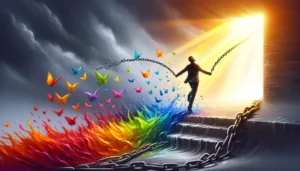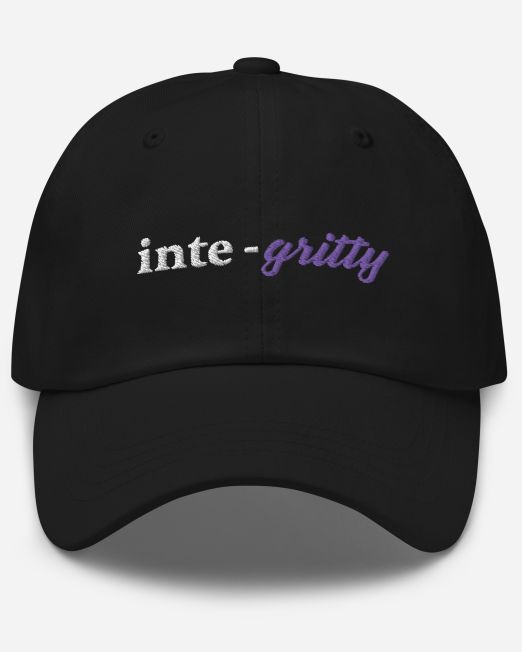
Introduction
The adage “happy wife, happy life” is often tossed around as a nugget of marital wisdom. But beneath its surface lies a complex web of expectations and beliefs about happiness, responsibility, and the dynamics of partnership. Is it truly fair, or even possible, for one person to shoulder the responsibility of another’s happiness within the confines of a relationship?
The Burden of Emotional Responsibility
The Myth of Ownership
This notion posits that one can fully own or be responsible for their partner’s emotional state. This belief can lead to feelings of guilt and inadequacy when inevitably, the partner experiences unhappiness. The heavy burden of emotional responsibility sets up a dynamic fraught with potential for resentment and perceived victimhood.
Autonomy and Emotional Labor
The imbalance created by this dynamic not only questions the sustainability of such relationships but also brings to light the concept of emotional labor. When one partner’s happiness becomes the sole responsibility of the other, it undermines the autonomy of both parties and creates an unsustainable cycle of emotional dependency.
Challenging Traditional Gender Roles
The Devaluation of Feminine Qualities
Society has long undervalued feminine attributes, dismissing them as weaknesses rather than recognizing them as vital strengths. This devaluation contributes to a skewed understanding of what it means to be strong, particularly within the context of a relationship.
The Embodied Man
The concept of the “embodied man” emerges as a challenge to these stereotypes, advocating for a balance where masculine qualities are enhanced by, not isolated from, their feminine counterparts. This balance fosters a fuller expression of strength, empathy, and service, contributing to healthier relationship dynamics.
Fostering Independence and Mutual Support
The Limits of Influence
While partners can undoubtedly influence each other’s happiness, the foundation of one’s emotional well-being remains an individual responsibility. Recognizing this can lead to a more supportive dynamic where each partner empowers the other to find happiness within themselves while providing love and support.
Building a Supportive Partnership
Creating a balanced relationship involves strategies for mutual support without overstepping boundaries into emotional ownership. Communication, understanding, and respect are key elements in nurturing a partnership where both individuals feel valued, supported, and autonomous.
Towards a New Understanding of Strength and Vulnerability
Redefining Strength
Traditional views of strength, often associated with masculinity and physical prowess, are expanding to include vulnerability, empathy, and emotional intelligence. This broader definition encourages a more holistic approach to personal and relational development.
The Power of Vulnerability
Vulnerability in relationships can lead to a deeper connection and mutual support. By embracing both masculine and feminine qualities, individuals can enhance their personal growth and contribute to a more fulfilling partnership.
Conclusion
The journey beyond traditional sayings like “happy wife, happy life” towards a more balanced and supportive partnership requires introspection, communication, and a willingness to challenge societal norms. By fostering autonomy, mutual support, and a comprehensive understanding of strength and vulnerability, couples can create more satisfying and sustainable relationships. Listen to the podcast this article was based on here, or watch the full video on YouTube here.
Latest YouTube Video
Merch
Get my newsletter
Blog

Decoding Mixed Signals in Relationships
Introduction Mixed signals in relationships can be perplexing and emotionally draining. Whether it’s an ambiguous text message or fluctuating levels of attention, trying to interpret what the other person really means can feel like navigating a labyrinth without a map. In this blog, Mercedes Terrell, a seasoned relationship coach, delves

5 Books That Changed My Journey with Anxiety
At 26, life was like a high-speed train on the track to success. There I was, basking in the limelight on live TV, thinking I had it all. Love, career, the works. Just when I thought I was living the dream, anxiety decided to crash the party. Hard. Picture this:
How Professional Modeling was a Lesson in Resilience
From the Runway to Resilience: Lessons in Self-Mastery In the glamorous yet unforgiving world of modeling, where appearances are scrutinized, and rejection can feel like a daily ritual, I discovered not just the art of walking in high heels but the deeper lessons of resilience, self-acceptance, and the crucial skill

Breaking Free from the People Pleaser Trap: A Path to Personal Empowerment
The desire to make others happy is a trait many of us value highly, often viewing it as synonymous with kindness and generosity. However, when the act of pleasing others comes at the expense of our own well-being, it transitions from a virtue to a potential source of self-neglect. In
The Art of Assertive Communication
Mastering the Art of Communication: A Guide In the realm of personal development and assertiveness, mastering the art of communication stands as a cornerstone skill that profoundly impacts the quality of our relationships and our self-respect. This guide, inspired by the teachings from the “Honing Assertiveness; A Prerequisite to Self-Mastery”
Developing Emotional Intelligence: A Comprehensive Guide
I In today’s fast-paced and intricately connected world, emotional intelligence (EI) emerges as a cornerstone skill for navigating relationships, both personal and professional, with grace and effectiveness. Emotional intelligence, the capacity to understand and manage your own emotions and those of others, transcends mere academic intelligence, offering a pathway to







